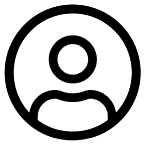Tapped In, Stressed Out

Not too long ago, getting the news was a choice. You’d pick up a paper, tune in to the 10 o’clock news or wait for Newsnight. You sought it out. Today, the news finds you. Whether you’re surprised during an innocent doom scroll, accosted by an LBC billboard on your commute or shoehorned an advert in between podcasts, current affairs feel like they’re everywhere.
We’re naturally curious creatures. We crane our necks at car crashes, chase breaking news that breaks nothing whatsoever, overhear gossip on the bus about people we don’t know and consume information that provides answers to questions we’d never care to ask.
Information feels like power. We hunt for certainty in a world that rarely provides it. The constant feed of global chaos comes at a steep cost: your well-being, mental clarity and, ultimately, performance.
The Science of Overload
Studies have shown that too much exposure to news—especially distressing or sensational news—doesn’t just mess with your mood. It messes with your body.
In fact, there's evidence that consuming too much news can stress you out more than living through the event itself. After the Boston Marathon bombing, one study found that people watching over six hours of coverage daily experienced more acute stress than those who were actually there.
Naturally, your average person isn’t watching the news for six hours a day. But the same theory was fleshed out during 9/11 too. While these studies look at extreme media consumption, the logic still applies, albeit to a lesser degree, for individuals consuming content in moderate amounts.
The media thrives on your negativity bias: your brain’s natural tendency to focus on threats. It’s a survival mechanism, but in today’s world, this bias is exploited to keep you hooked. Scary headlines grab your attention. Heated debates spark outrage. And the algorithms keep feeding you more.
You may well be “informed” of global events by paying attention to current affairs (whether via traditional channels or opinionated torsos on social media) but… how much utility does this knowledge provide? How much of your bandwidth is it sucking up? How much stress is it introducing?
Debating distant elections and dissecting trade disputes won’t alter your bin collection, provide a promotion or improve your personal bests. Yet that energy could be used for things that directly impact you: health, goals, friendships, whatever.
The Spectacle vs. Reality
French theorist Guy Debord called it “the spectacle.” He wrote in the 1960s that our reality is no longer lived directly. Instead, it’s mediated through images, narratives, and representations. Sixty years later, as tends to be the case, his words are more prescient than ever.
We scroll past videos of disasters, click articles summarising conflicts, and binge late-night comedy shows mocking the absurdity of it all. We know about the political shake-ups in Austria, the economic upticks in India, and the latest scandal involving someone we’ve never met. But we’ve lost touch with the reality outside our front door.
It’s not just the news, either. The way we consume information has become a parody of itself. Social media thrives on outrage; algorithms serve more of what riles us up. The alternative—promoting positivity—delivers a weaker return. Take the Russian paper that tried only publishing positive stories for a day, only for its readership to drop by 66%.
We may inherently be drawn to bad vibes, but what are they really providing us?
The Negativity Bias Trap
Evolutionarily, negativity bias made sense. Spotting a threat meant surviving. But today, that same bias keeps us glued to headlines that magnify our fears while minimising our agency. Current affairs report, sure, but they also amplify. One study highlighted, across Danish newspapers spanning fifteen years, that economic downturns are reported with more intensity and doom than periods of growth are celebrated.
This distortion of reality doesn’t just affect how we perceive the world—it changes how we behave. Research on cancer coverage revealed that people exposed to certain stories dramatically overestimated the prevalence of those cancers, leading to widespread misconceptions. To quote the late Roy Walker, it’s a say-what-you-see scenario. People create Zeitgeists, they aren’t merely reportage of fact.
Just because something’s commonly reported doesn’t mean that it’s genuinely common. We parrot news headlines to one another as if we’re experts in the field, whilst rarely diving into the article explaining the title, let alone the source material that situates fact in context and nuance.
Who has the time to fully understand niche topics? More pertinently, why do we concern ourselves with distant chatter that colours our perspective and disposition when, 99 times out of 100, we have no means to alter the outcome at all?
Where Does This Leave Us?
The simple truth is this: we weren’t built to carry the weight of the world’s problems, minute by minute. The constant barrage of news doesn’t just inform us, it consumes us, leaving little room for the things that truly matter in our day-to-day lives.
Maybe the Austrian elections don’t need your mental bandwidth. Maybe it’s okay to miss the latest “breaking” story about a scandal that won’t matter in a week. Maybe it’s time to ask yourself: Do I really need to know this?
Because, as it turns out, knowing too much—especially about things you can’t control—doesn’t make you stronger, smarter, or more prepared. It just makes you tired and frustrated.
Understanding our human inclination to seek out threats may well, for a few of you reading this, instigate pause the next time you delve into a bleak, disempowering and often futile topic.
The next time a push notification lights up your screen unprompted, consider ignoring it. Question whether your exposure to the news is healthy and/or productive.
Regardless of your awareness of Trump's next move, the world will continue to spin. Take back as many moments as you can to lean into whatever it is that lights you up, instead of your phone.




Leave a comment